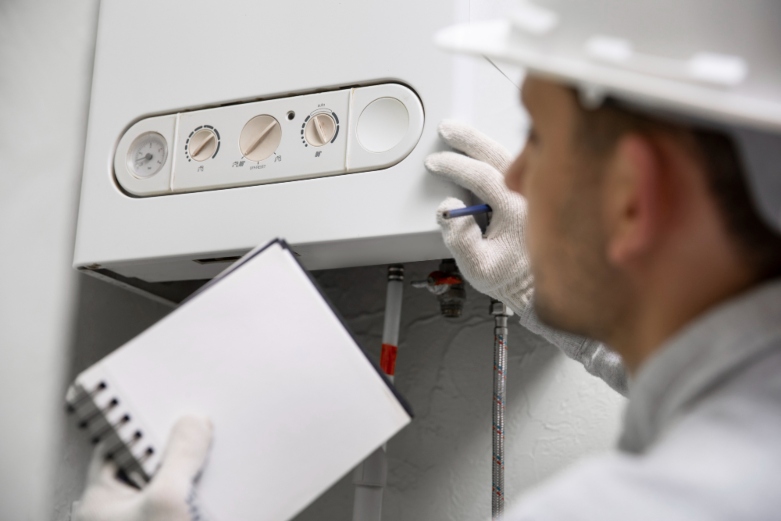Are you feeling fraught with the monumental task of selecting a new water heater for your home? Does the plethora of options on the market leave you drowning in confusion? You’re not alone. Choosing the right gas hot water system is no small feat, and that’s precisely why we’re here. Let us be your guiding light as we delve into the depths of this hot topic: gas hot water systems for your home.
The truth of the matter is that not every gas hot water system is created equal. Some may be a perfect match for your home and lifestyle, while others may simply not make the cut. It’s not just about finding the most expensive or the most popular model; it’s about finding the one that fits you and your home like a glove. As you walk through this guide, consider the needs, desires and constraints you have regarding your home’s new water heating system.
The aim of this article is simple: to help you cut through the noise and focus on the aspects that truly matter when choosing a gas-hot water system. It’s a road less traveled, but with us, you’ll find the journey both enlightening and rewarding. Let’s get started!
Understanding why a gas hot water system
Why, you may ask, should you opt for a gas hot water system instead of other available options? Understanding the ‘why’ is crucial before we start discussing ‘which’ model to choose. Gas water heaters are highly efficient, with a potentially lower operational cost compared to electric variants as gas is often cheaper. They offer a consistent supply of hot water which is perfect for larger families or high-usage households.
Moreover, gas hot water systems have shorter recovery times, meaning they can heat a full tank of water faster. Thus, they’re a good fit for homes with high hot water demand. On the flip side, these systems mandate proper ventilation for safety purposes and may require professional installation, adding to the upfront cost.
A key point to remember is that opting for a gas hot water system involves carefully weighing its benefits against the cost and installation requirements. In a nutshell, the system exemplifies promising efficiency and economy but requires diligent attention towards safety and maintenance.
Determining the ideal size
Choosing the perfect size is critical to avoiding the extremes of having excess capacity or running out of hot water. Typically, sizing depends on the number of residents and your lifestyle. For a house with three to four occupants, a 130 to 170-litre tank may be adequate. Larger households might require a larger tank.
Estimating the ideal size involves taking into consideration factors such as the number of bathrooms, appliances that need hot water, and your peak water usage time. A larger tank might mean more upfront costs and might take up more space, but it ensures you have hot water when you need it most.
In contrast, going for a smaller tank can be cheaper and space-saving. However, you need to be prepared for possible hot water shortages. Gauging the perfect size for your gas hot water system is certainly a balancing act, but a necessary one to ensure long-term satisfaction with your choice.

Reviewing the types of gas hot water systems
Gas water heaters essentially come in two types: storage tank systems and continuous flow (or tankless) systems. Storage tank systems keep a tank of hot water ready for use, but the tank size limits the amount of hot water available at a time. In contrast, continuous flow systems heat water on demand, offering unlimited hot water, but they might experience a slight delay in delivery.
Each system has its strengths and weaknesses. While storage tank systems are known for their convenience and capacity, they can be bulky and might lose some energy through standby heat loss. Tankless models, though compact and energy-efficient, require significant initial investment and may strain under simultaneous, multiple-outlet use.
Choice of the right type warrants a comprehensive understanding of your hot consumption pattern, available space, willingness to await hot water delivery, and preference between upfront and long-term costs.
Considering the energy rating
Gas hot water systems come with an energy rating that denotes their energy efficiency. The higher the star rating, the more energy-efficient the unit is, which means reduced greenhouse gas emissions and potentially lower running costs over time.
While opting for a high-star-rated unit could imply a higher upfront cost, it could lead to substantial savings in the long run. This is especially true if you use plenty of hot water in your home. The energy rating also impacts its environmental footprint – another significant factor for the eco-conscious homeowner.
Weighing up the installation process
Though seemingly straightforward, the installation process may influence the choice of your hot water system. Professional installation is advisable, if not mandatory, for gas systems. Remember, poorly installed units may pose safety risks and may not function optimally.
Some models may also need additional plumbing work or require a certain size flue or ventilation, escalating installation costs. At the same time, a well-installed and maintained unit will last longer and perform efficiently throughout its lifespan.
Conclusion
Choosing the right gas hot water system for your home is an exercise of educated decisions and careful deliberation. It’s about understanding the complexities, potential benefits, and limitations of various models and aligning them with your specific needs and habits, your budget, and your environmental concerns.
The right system has the power to ease your everyday life and provide comfort for you and your family while potentially being a cost-effective and eco-friendly solution. It’s a journey towards a warmer, more efficient home, and we hope this guide serves as a faithful roadmap.





